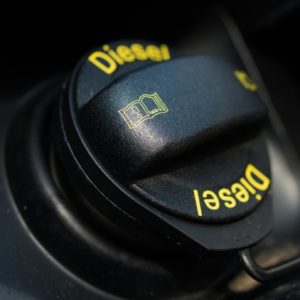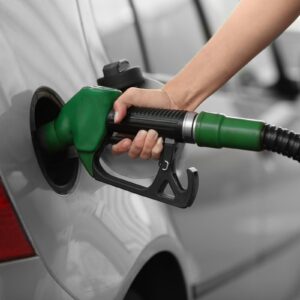Have you ever wondered, “What’s the difference between diesel and gasoline engines?” It’s a common question that many motorists have been asking for years. Technologies are ever-changing, and the answer can vary over time. Here are some key differences between the two:
Fuel
One of the main differences between the two engines is the fuel they use. Because of this, it’s important to note the differences between gasoline and diesel fuel. Gasoline is more refined, which results in a thinner and more volatile liquid. As a result, it burns faster and produces more horsepower. Diesel, on the other hand, is thicker, burns slower, and is more dense. It affects many of the other factors on this list, which we’ll discuss in each section.
Emissions
When traveling over the same distance on highway conditions, diesel vehicles burn less carbon dioxide (CO2) than gasoline vehicles, but in exchange, they emit potentially toxic particulate matter. These emissions can significantly impact public health.
That being said, modern emissions standards and regulations have forced manufacturers of diesel vehicles to match gasoline vehicles in terms of emissions. Manufacturers achieve this by including particulate filters that vehicle owners need to maintain. In contrast, gasoline vehicles are self-regulating.
Design
Because they use different types of fuel, the core design of a diesel engine vs. a gasoline engine is different. Diesel engines have multiple gears, large cylinders, strong pistons, and big crankshafts. They have a simpler design that works off of basic gear operations. They’re made from heavy-duty materials, and their engine gears are fixed at a set place. There’s limited movement in diesel engines, which reduces wear and tear. You’ll see how this affects longevity later on in this article.
Gasoline engines are more complicated. They work on chains and belts and contain hundreds of small parts that operate together with high precision. The stop-and-go operations in a gasoline engine are regular, which stresses the parts and increases wear and tear. Some newer diesel engines operate the same way as gasoline engines using timing chains and variable valve timing.

Thermal Efficiency and Fuel Economy
Thermal efficiency and fuel economy are closely connected in both diesel and gasoline vehicles. Thermal efficiency is the measure of how much work is done in relation to the amount of heat produced. There’s a big difference between gasoline and diesel engines in this category, as diesel engines are about 20% more thermal efficient than gas engines. This correlates to a 20% increase in fuel economy in diesel vehicles. Part of this is thanks to the density of diesel fuel vs. gasoline. Diesel is thicker than gas and has more energy density.
Power Output
The horsepower and torque of your vehicle also depends on its engine and the type of fuel you use. Torque measures the twisting force on the engine’s driveline while horsepower is a measurement of power.
High horsepower and low torque will lead to a vehicle that’s slow to speed up. The more torque you have, the faster your vehicle starts moving. Diesel engines have higher torque and lower horsepower compared to gas engines. That’s why manufacturers of sports cars favor gasoline engines. The increase in horsepower is a good trade-off for torque. Trucks, on the other hand, need a lot of torque to move heavy loads and benefit from diesel engines.
Method of Combustion
Both diesel and gas engines use combustion to convert the fuel’s chemical energy into mechanical energy. However, their methods of combustion differ as a result of how diesel and gas combust.
Gasoline engines use sparks created by their spark plugs to ignite the perfect air-fuel mixture in the combustion chamber. For diesel engines, the air needs to be compressed before being injected into the combustion chamber. As the air compresses, it creates a high compression ratio, heating up and igniting the diesel fuel. Diesel engines have high compression ratios which create high compression.
Engine Lifespan and Reliability
Because diesel engines compress air almost twice as much as gas engines, they’re built to be more robust. The requirement for higher compression also leads to more complete combustion of fuel. As a result, diesel engine exhaust is less corrosive and the engine components end up with a longer service life.
Gasoline engines can hit around 120,000 to 150,000 miles before the cylinders start showing wear. This results in decreased efficiency. Diesel engines have longer life cycles, with some reaching about a million miles before breaking down.
Diesel engines also operate on compression rather than spark plugs and, as a result, they tend to have fewer parts that can malfunction. This leads to a more reliable engine with fewer failures and smaller repair bills. Diesel fuel also acts as a gentle lubricant as the engine runs. Several vehicles that hold high mileage records use diesel engines.
That being said, diesel engines are less forgiving when it comes to oil change intervals and fuel filter changes. The quality of diesel fuel plays a large part in extending or reducing the lifetime of a diesel engine. Gasoline engines are much more forgiving when it comes to these factors.
Diesels are less forgiving when it comes to oil change intervals and fuel filter changes, and the quality of diesel also fuel plays a large factor in length of life of the engine. Gasoline engines are way more forgiving when it comes to these.
–Anthony Harlin, ASE Certified Master Automobile Technician
A lot has changed since diesel and gas engines became mainstream, and there’s no doubt that technology will continue to improve for both. As you’ve seen, this has led to diesel engines matching gas engines in emissions while also providing better fuel economy and reliability. That being said, gas engines continue to lead in horsepower. So, the next time someone asks you, “What is the difference between gasoline and diesel engines?” you have seven key aspects to point to. The question is, which differences matter to you?
How to Get a High-Quality Replacement Fuel Filter
Most internal combustion vehicles have a fuel filter that catches contaminants. If the filter clogs up or takes damage, it’s best to stop driving your car or truck to avoid problems with the fuel system or engine until you replace the faulty part. Return your vehicle to the road with a world-class replacement fuel filter from CarParts.com.
CarParts.com carries a wide selection of high-quality fuel filters for various makes and models. We exclusively source our products from established brands trusted by many drivers across the US, ensuring the replacement part gives long-lasting performance. Find a part that fits your car or truck by entering specific details in our integrated vehicle selector, which will bring up the compatible products in our extensive catalog. All our on-hand fuel filters are ready to ship from our strategically located warehouses. If you live in the continental US and order before 12 p.m. ET, you can get your new filters in only several business days.
Whether your vehicle uses a gasoline or diesel engine, order its replacement fuel filter from CarParts.com. Find the fuel filter that fits your car or truck today!
Any information provided on this Website is for informational purposes only and is not intended to replace consultation with a professional mechanic. The accuracy and timeliness of the information may change from the time of publication.
































